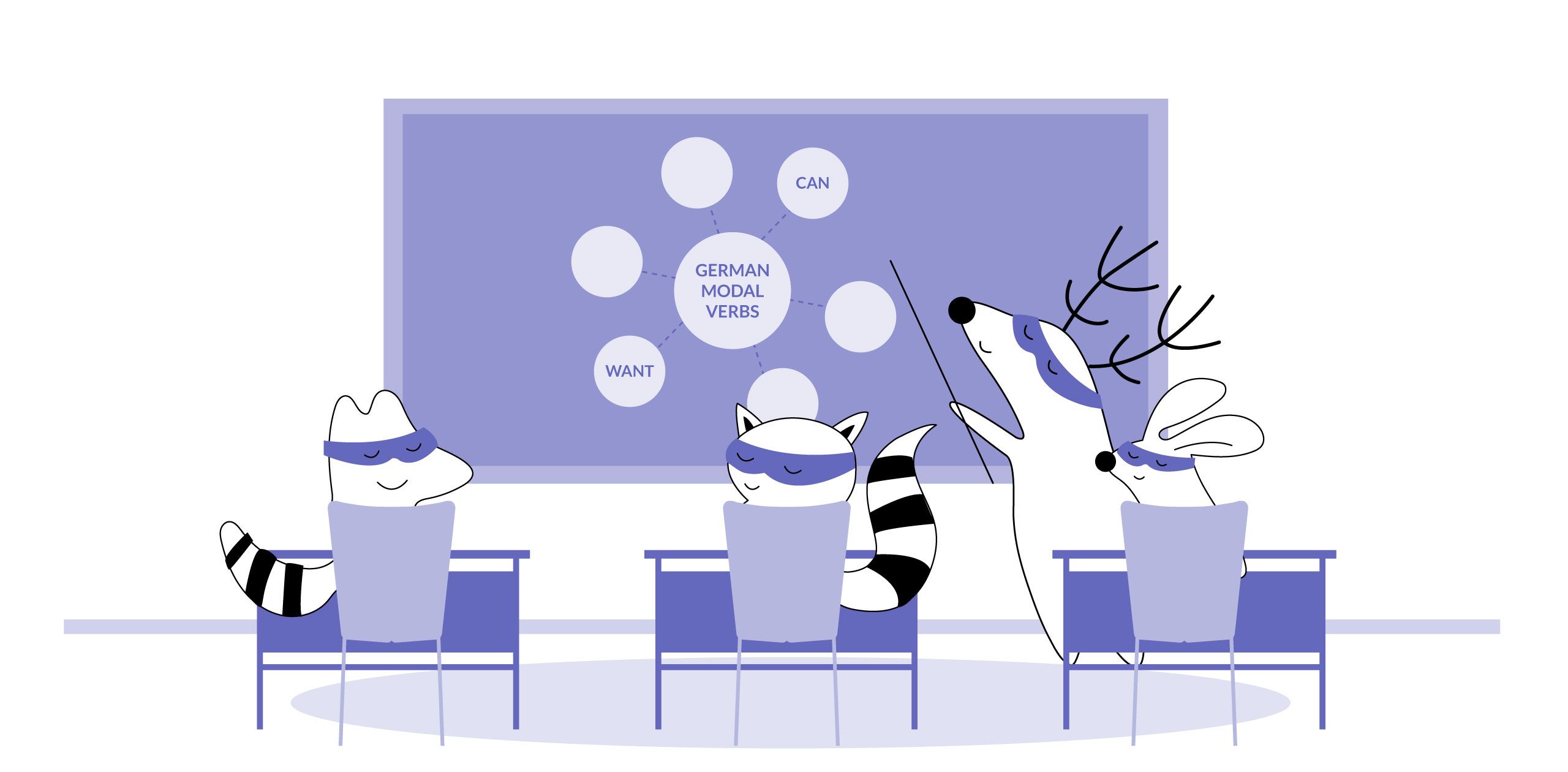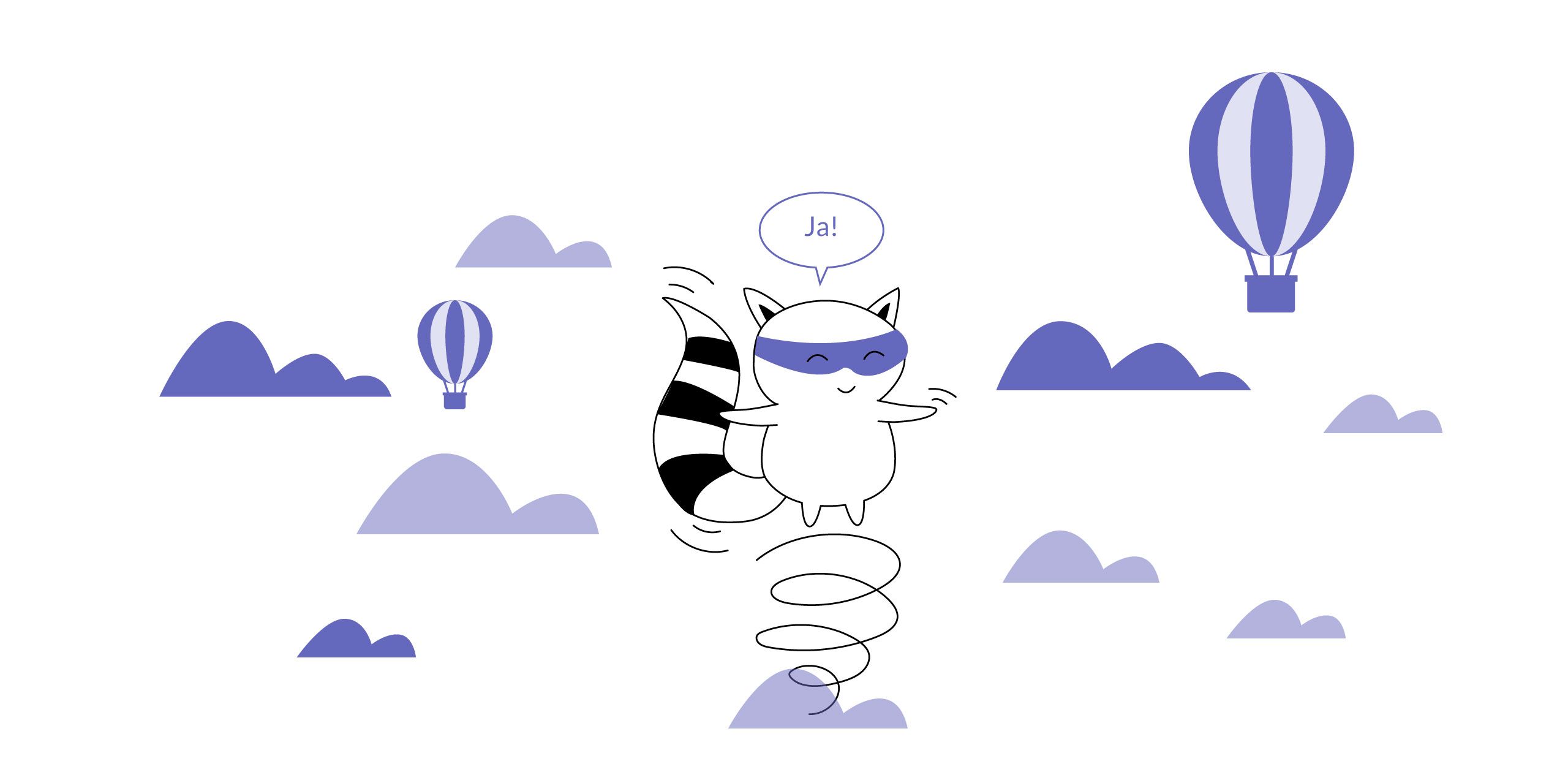
If you visit a country and you don't speak the language very well, it can be difficult to find your way around at first. Having a few basic language skills can significantly improve your situation.
When you begin learning a new foreign language, you don't start with sentences, you start with words. The first things you usually learn are "Yes" and "No." Knowing how to express your desires can be extremely useful in a foreign country - a simple No can save your life, and a short "Yes" can open many doors.
As we want lots of open doors for you when you decide to visit Germany or travel other German-speaking countries, and help you boost the language-learning process, today, we will talk about the many ways to say "Yes" in German and how to show affirmation in general. Let's learn some new vocabulary together!
Learn German with Langster
1. "Ja" Is the German "Yes"
You may have heard it before, but "ja" is the short and simple word in German for "yes." As in most languages, in German, there are multiple ways to say it. You might find people using the words "jap", "yep," or even the English word "yes," to name a few examples of a more informal way to say "ja."
German
English
Ja
Yes
For English speakers, the pronunciation is simple. The German "j" sounds similar to the English "e." As a result, the best way to pronounce words beginning with "j" like a German is to imagine that they start with an "e." Try pronouncing "ja" as "eja."
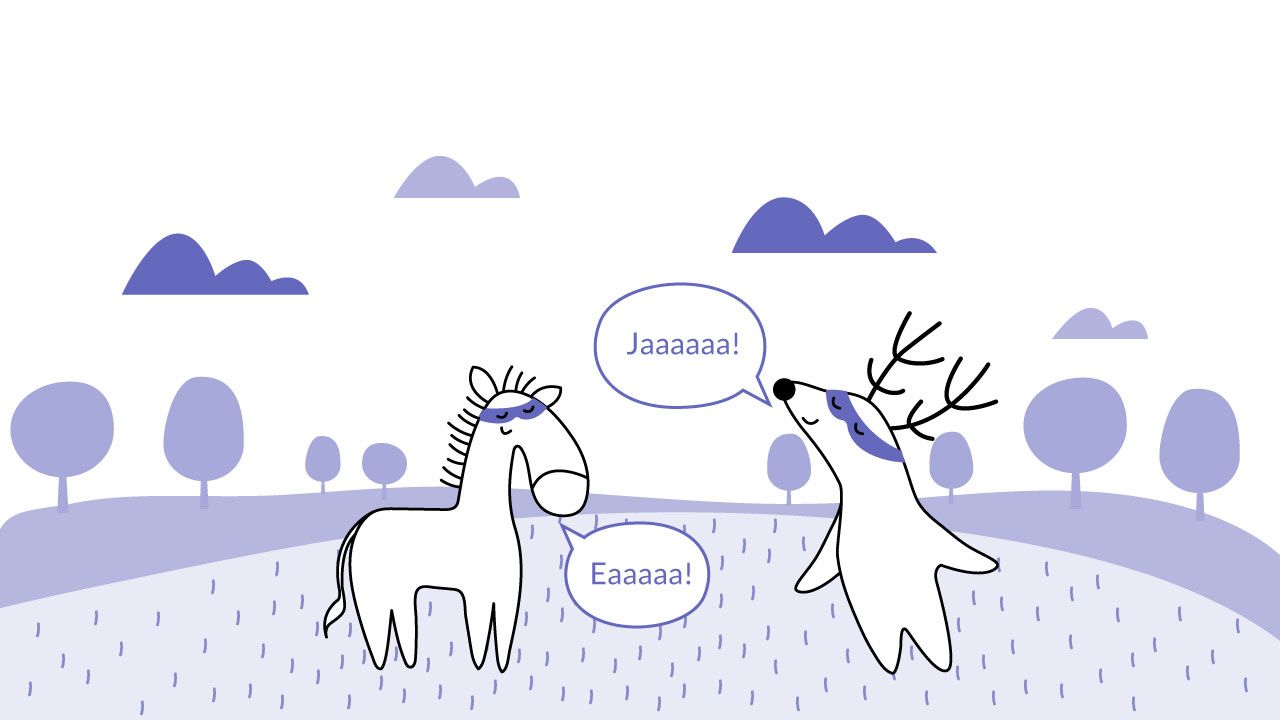
Aside from "ja," which is the direct equivalent of "yes" and the inverse of "nein" (which is "no"), there are some other ways to say "yes" in German in more specific situations. We'll go over them in the following sections.
"Yes" As an Affirmation
If someone proposes something or expresses an idea you agree with, you can say "Ich stimme dir zu," which means "I agree with you” instead of simply saying "yes." To make this phrase more formal, change the pronoun "dir" to "Ihnen" and say "Ich stimme Ihnen zu."
German
English
Ich stimme dir zu.
I agree with you (informal).
Ich stimme Ihnen zu.
I agree with you (formal).
If you want to confirm someone's statement, such as "that is true," you can use the phrases "das stimmt" or "das ist wahr" in German. By using those phrases, you are supporting the speaker.
German
English
Das stimmt.
That's right.
Das ist wahr.
That's true.
"No Doubt" in German
Moreover, in English, you can say "no doubts" to express how certain you are about a situation. In German, the phrase "ohne zweifel" or "zweifellos" has the same meaning and can also be used to support the speaker.
German
English
Ohne zweifel.
No doubt.
Zweifellos.
Undoubtedly.
"Exactly" in German
Another word that you will most likely hear a lot in this context is "genau." The English equivalent is "exactly," and Germans use it frequently during conversations.
German
English
Genau.
Exactly.
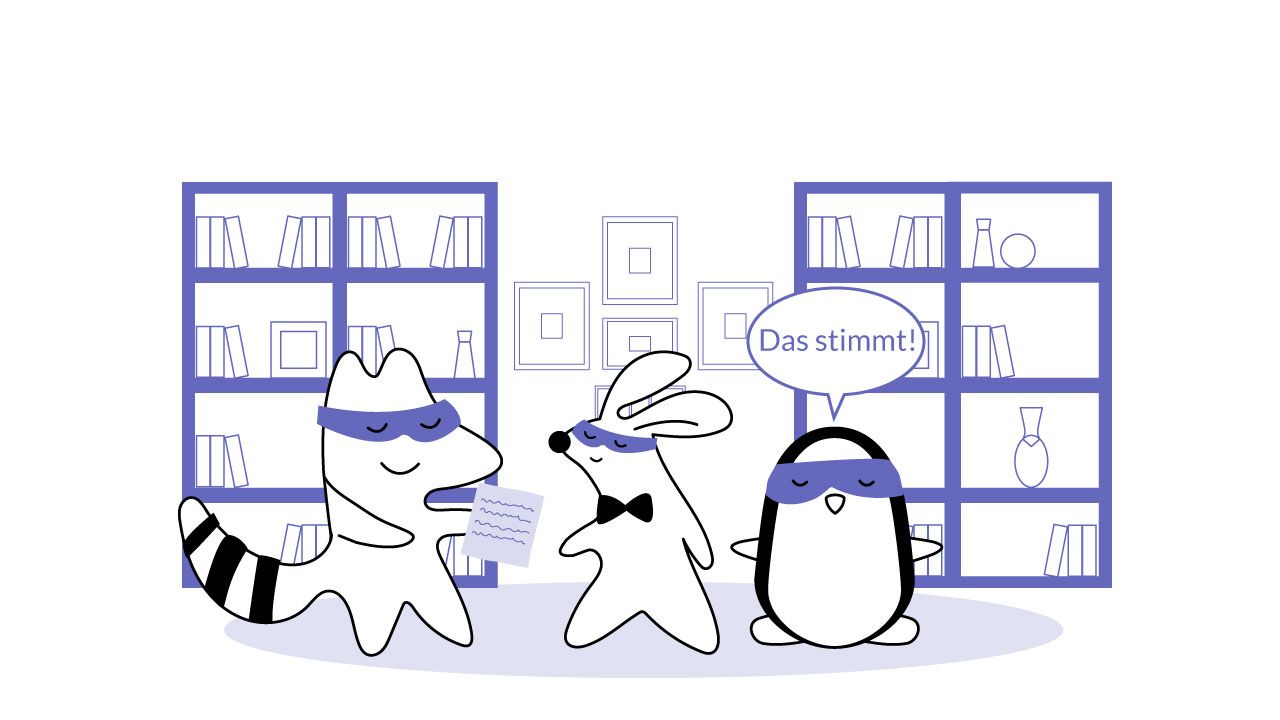
2. "Doch" As a Response to a Negative Statement
Consider the following scenario: someone makes a negative statement such as "We will not make it to the bus station until 8 pm," and you disagree. In the English language, you would say "Yes, we will," using the same "Yes" you would use for affirmations.
In this type of situation, the German language has a specific word. Germans express the inverse of a negative statement by saying "Doch." So, if someone says, "There is no bus today," but you know there is, you say, "Doch" instead of "Yes."
German
English
Doch.
Yes (in a response to a negative statement).
Responding to a negative question works the same way. If somebody asks,
German
English
Hast du nicht zugehört?
Did you not listen?
but you did listen, the answer is
German
English
Doch, habe ich.
Yes, I did.
The pronunciation of "Doch" would be /dox/, a sound that you will find often when learning German.
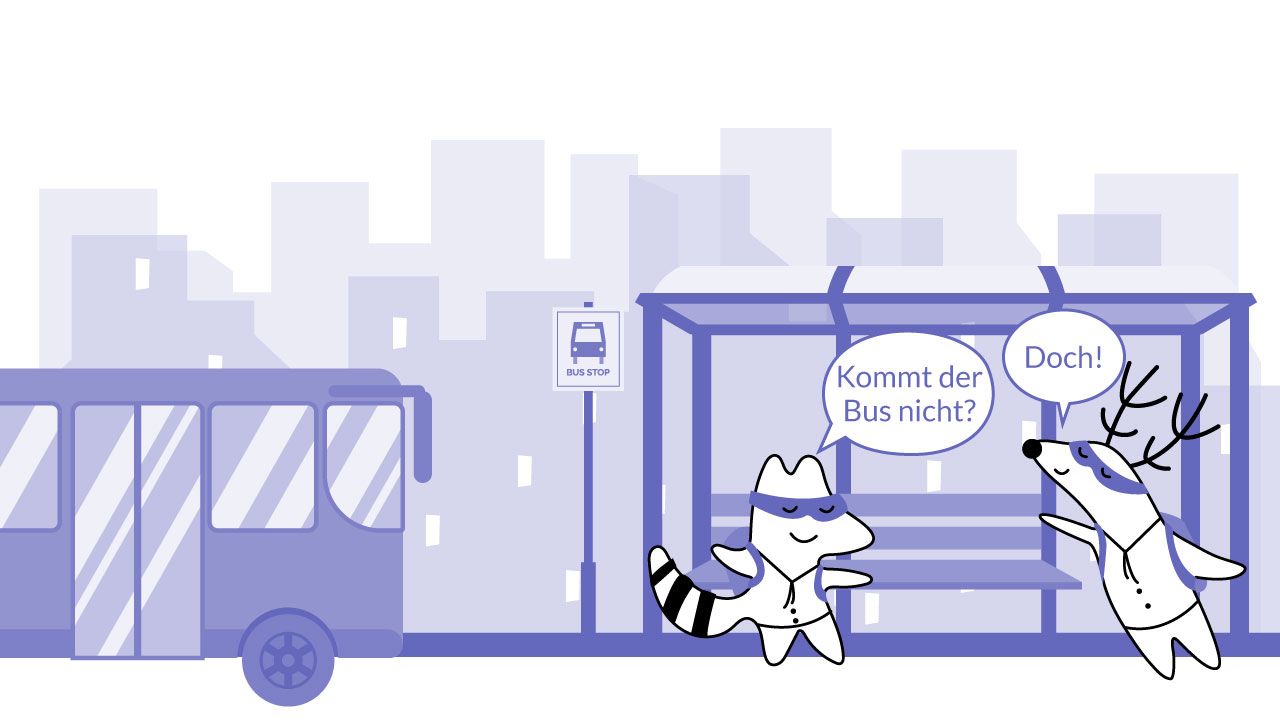
3. Agree to a Suggestion by Saying "Yes" in German
People in Germany enjoy hanging out in groups and spending time together. As a result, you may find yourself in discussions about what to do next because several people must coordinate and agree on a single plan at the same time.
So, if you want to express that you like an idea in order to steer the discussion in a specific direction, you have several options. First, you can say "das klingt gut," meaning literally "that sounds good" in English.
German
English
Das klingt gut.
That sounds good.
"Definitely" in German
Besides "das klingt gut," you can also use the phrase "auf jeden Fall'', which would be literally translated like "in every case," but the English equivalent is "definitely." A similar answer is the English word "surely," which would be "sicher" in German.
German
English
Auf jeden Fall.
Definitely.
Sicher.
Surely.
4. How to Express that You Are Fine With the Situation
Sometimes you might also want to make sure that the other person knows that the situation or the plan seems good for you by saying, "yes, no problem." In this case, you can use the phrase "ya, kein problem" in German, which means the same.
German
English
Ya, kein problem.
Yes, no problem.
If you don't have an opinion on a particular topic or if you're just open to anything, you have another option. In the same way as you would say "yes, why not?" in English, you can say "ja, warum nicht?" in German.
German
English
Ja, warum nicht?
Yes, why not?
Bonus: A Euphoric "Yes" for Special Situations
You surely know the situations in which people use words like "oh yeah" in English or "bravo'' in Italian to express their joy with what is going on. The German word for that is "jawoll,'' and you will hear it in various settings and situations throughout Germany.
German
English
Jawoll!
Yes!
You mostly will find people screaming that word because usually, they use it when they feel excited or euphoric. Perhaps you will hear your next-door neighbor yelling "Jawoll!" because he is watching football or your friends saying it because they were correct about something.
It can be an answer to something or simply a way to express your feelings, but it is usually associated with a cheerful mood. So, instead of pondering for too long about how to describe the pleasant energy you have, you can simply yell, "Jawoll!"
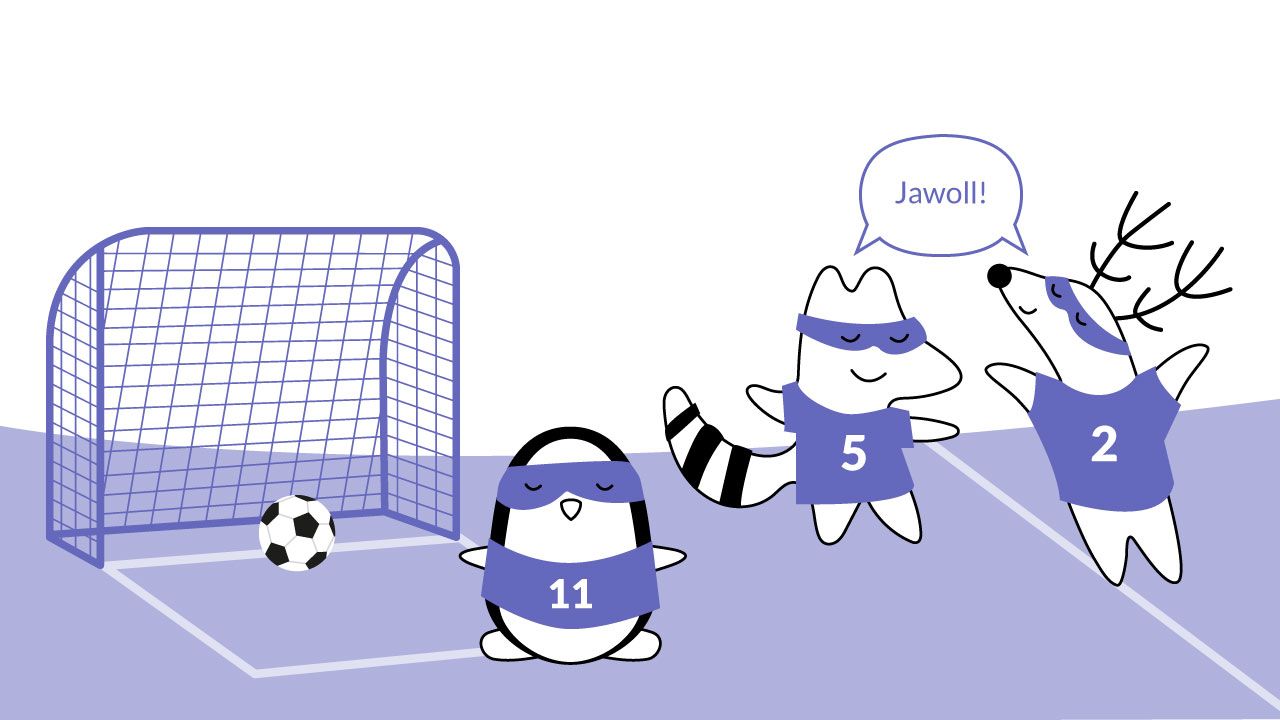
What Have You Learned?
To summarize, let us go over the various German words for saying "yes" one more time. Aside from the standard "ja" as a response to a question that you want to confirm, there are other options to say "yes" depending on the context.
You have several options for expressing your support for someone's statement. You can say "das stimmt" (that is true), "genau" (exactly), "auf jeden Fall" (definitely), or "zweifellos" (no doubts).
When someone makes a negative statement that you disagree with because you know the positive opposite is true, you respond with "Doch" (Yes). We'll look at a short sentence to remember: "Da ist kein Ausgang" (There is no exit) - "Doch!" (It is, indeed).noWe wish you good luck with learning German and hope you have the chance to say the word "ja'' soon in a variety of situations. And if you want to learn more words in German, check out the Langster app and get started with this exciting journey!








